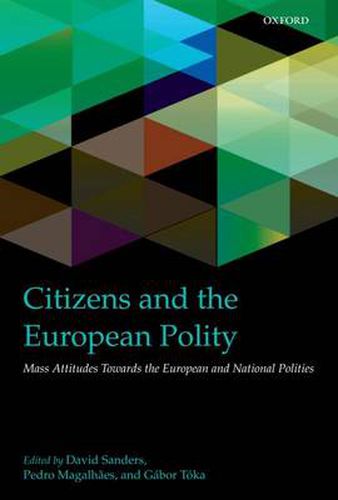Readings Newsletter
Become a Readings Member to make your shopping experience even easier.
Sign in or sign up for free!
You’re not far away from qualifying for FREE standard shipping within Australia
You’ve qualified for FREE standard shipping within Australia
The cart is loading…






This book provides a broad overview of the main trends in mass attitudes towards domestic politics and European integration from the 1970s until today. Particularly in the last two decades, the end of the permissive consensus around European integration has forced analysts to place public opinion at the centre of their concerns. The book faces this challenge head on, and the overview it provides goes well beyond the most commonly used indicators. On the one hand, it shows how integration’s d eepening and enlargement involved polities and societies whose fundamental traits in terms of political culture - regime support, political engagement, ideological polarization - have remained anything but static or homogeneous. On the other hand, it addresses systematically what Scharpf (1999) has long identified as the main sources of the democratic deficits of the EU: the lack of a sense of collective identity, the lack of a Europe-wide structure for political accountability, and the lack of recognition of the EU as a legitimate political authority. In other words, it focuses on the fundamental dimensions of how Europeans relate to the EU: identity (the sense of an European political community ; representation (the perception that European elites and institutions articulate citizens’ interests and are responsive to them); and policy scope (the legitimacy awarded to the EU as a proper locus of policy-making). It does so by employing a cohesive theoretical framework derived from the entire IntUne project, survey and macro-social data encompassing all EU member countries, and state-of-the-art methods.
$9.00 standard shipping within Australia
FREE standard shipping within Australia for orders over $100.00
Express & International shipping calculated at checkout
This book provides a broad overview of the main trends in mass attitudes towards domestic politics and European integration from the 1970s until today. Particularly in the last two decades, the end of the permissive consensus around European integration has forced analysts to place public opinion at the centre of their concerns. The book faces this challenge head on, and the overview it provides goes well beyond the most commonly used indicators. On the one hand, it shows how integration’s d eepening and enlargement involved polities and societies whose fundamental traits in terms of political culture - regime support, political engagement, ideological polarization - have remained anything but static or homogeneous. On the other hand, it addresses systematically what Scharpf (1999) has long identified as the main sources of the democratic deficits of the EU: the lack of a sense of collective identity, the lack of a Europe-wide structure for political accountability, and the lack of recognition of the EU as a legitimate political authority. In other words, it focuses on the fundamental dimensions of how Europeans relate to the EU: identity (the sense of an European political community ; representation (the perception that European elites and institutions articulate citizens’ interests and are responsive to them); and policy scope (the legitimacy awarded to the EU as a proper locus of policy-making). It does so by employing a cohesive theoretical framework derived from the entire IntUne project, survey and macro-social data encompassing all EU member countries, and state-of-the-art methods.